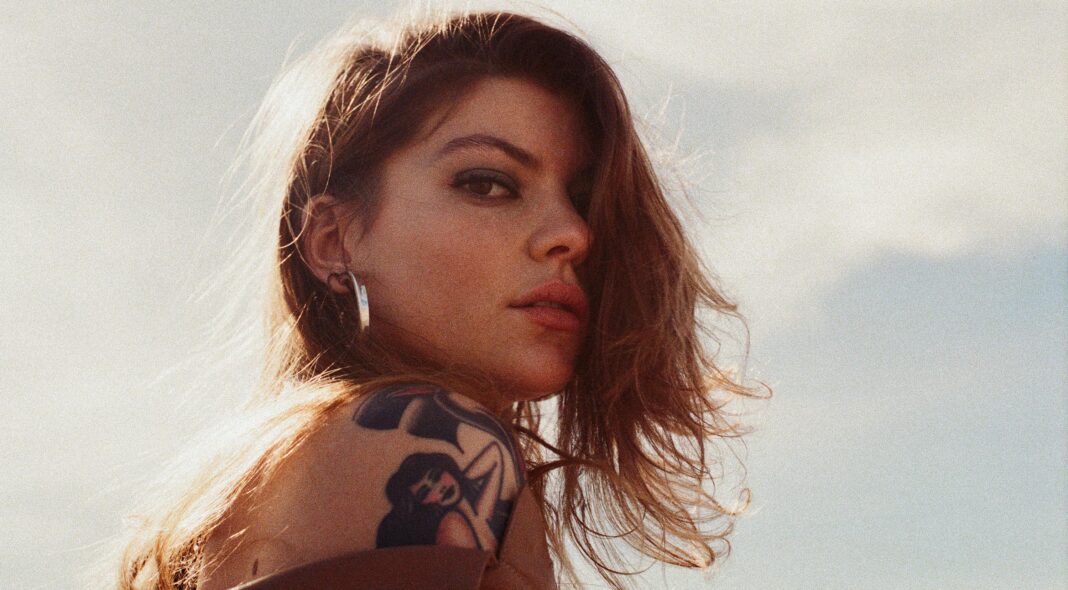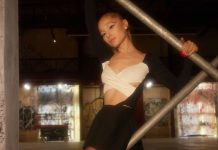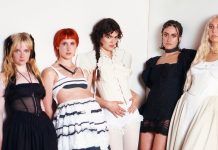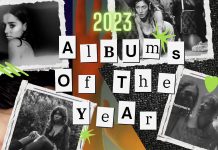In songwriting circles, Donna Missal’s abilities have long been an open secret. A reluctant star originally, the Pasadena-based singer-songwriter first found fame in 2015, when a song she wrote with every intention of giving away, called ‘Keep Lying’, became a viral smash. Since then she’s enjoyed high profile co-signs from St. Vincent, King Princess and fellow New Jersey-native Sharon Van Etten, with whom she co-wrote ‘Jupiter 4’ from ‘Remind Me Tomorrow’, a shimmering electro-pop version of which was included on Missal’s 2018 debut, ‘This Time’. Indeed, listening to the powerful pop-rock on that record now, and to Missal’s extraordinarily soulful vocals throughout, it’s bizarre to imagine her ever remaining a behind-the-scenes player.
Even so, Missal’s latest album represents a palpable step forward, finding the 29-year-old embracing a widescreen sound befitting of the stadiums she frequented while opening for Lewis Capaldi across Europe this March. We caught up with Missal over Zoom to hear how Sheryl Crow, Alanis Morrissette and a new-found emotional vulnerability helped inspire ‘Lighter’, and how lockdown life has changed her whole perspective on music as a career.
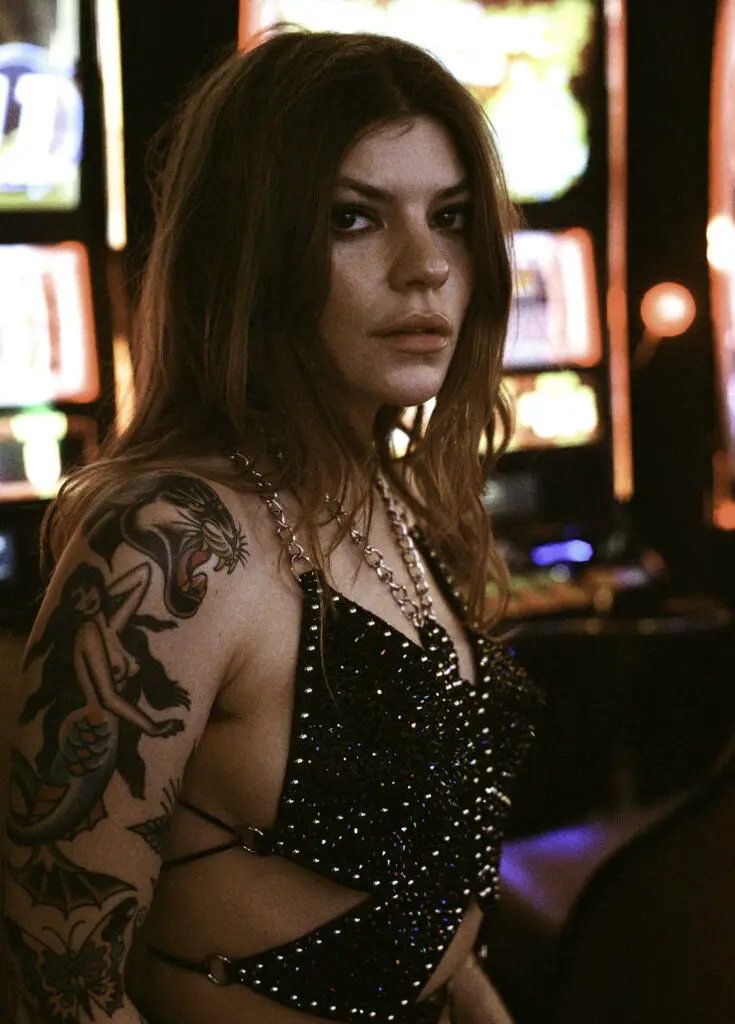
How has it been prepping to release an album in the current climate?
“Um, scary? Confusing? I was waking up every day with this dread, like, how am I going to do this? I had these aspirations for this album: to tour it as soon as possible, and to promote it in every way I could. I wanted to take myself to the next level of success. And that perception of success – prior to COVID and lockdown – was to book bigger shows, sell more records, make more money… And then all of this happening derailed all of those intentions to such a degree where it was impossible to make those intentions come true.
At first I felt totally defeated, and like I had failed my record. Or that I was disappointed with the world I was releasing my record into; a record I had spent so much time and put so much of myself into. And then I realised very recently that I can reframe my intentions. Just fuck the intentions; change your mind. Decide that those things are not important to you anymore and remember why this album was even fucking written. And I wrote it because I was heartbroken and I needed to say something. I express myself through music – that’s my purpose, right? I had forgotten and gotten really swept up in the process of putting out an album. So I really feel like the current environment has given me a chance to remember why I make music at all.”
Previously you were reticent about channelling personal experiences in your songs. What changed with ‘Lighter’?
Up until I made this record, I was just really exploring myself as a writer. I’m really influenced by mixtape culture, where you can listen to all different kinds of things and it’s socially acceptable. I think my first record was really a reflection of that mindset. And I wrote the songs for my first record over a really long period of time.
With this record I had the opportunity to decide how I wanted to approach it as an artist. And I just happened to be in the midst of a really transformative personal experience when I was doing most of my writing. Like, I got off tour, I went through an insanely difficult break-up with a long-term partner, and I just started writing about it and a few months later I had all of the songs for this record.
Was opening up challenging?
I think the big challenge was getting over myself and my fear of vulnerability. I think also, the world has become so much more politically aware – and music has always dictated culture in such a powerful way – that as I was finishing this record I wondered, did I just miss an opportunity to stand for something politically in my music? And am I doing the wrong thing by making something that’s just from me and my own personal experience? The conclusion that I came to, after speaking with a lot of people that I really trust and admire, was that it’s possible that the most political thing that I could do right now is just speak from my heart. To create something where people can feel more connected to the world around them, simply through examining the way that we feel on a really human level.
Musically, what was the goal?
I remember in the very first session I had with my producer Andrew [Wells], I was like, I have this idea: I want to make an album that sounds as if Shania Twain and Sheryl Crow were writing songs with Oasis and Smashing Pumpkins. Like, what would that sound like? Because that’s what I was listening to.
I want to make an album that sounds as if Shania Twain and Sheryl Crow were writing songs with Oasis and Smashing Pumpkins.
Donna Missal
Was that the music you were listening to back in the 90s?
Well I was born in 1990, so pop and R&B was really huge when I was a kid. I gravitated towards groups like Destiny’s Child and TLC, and artists like Alicia Keys. That was my introduction to singing and vocalising. I think because of my age, I missed the era of the artists that I’ve mentioned that influenced this album so heavily. But as I’ve gotten older I’ve started to look further into history.
Very honestly, how I came about listening to a lot of the artists that influenced this album was that I got a car and it had a CD player, so I went to Goodwill and I bought, like, 50 CDs, for a dollar each. So as I was driving to and from studio sessions I was listening to these CDs and they were working themselves into the DNA of the songs that I was writing.
So Smashing Pumpkins, ‘Mellon Collie [and the Infinite Sadness]’. Sheryl Crow’s greatest hits. [Alanis Morissette] ‘Jagged Little Pill’. I was listening to that a tonne. It has amazing production, and her songwriting is so cathartic. I think it also really helped to not give a shit anymore about making something that sounded cool and current. I just wanted to make something that I fucked with. And something that I thought was timeless, and that you could listen to in 20 years and it would still hold water.
READ MORE: A LOVE LETTER TO ALANIS’ ‘JAGGED LITTLE PILL’ AT 25
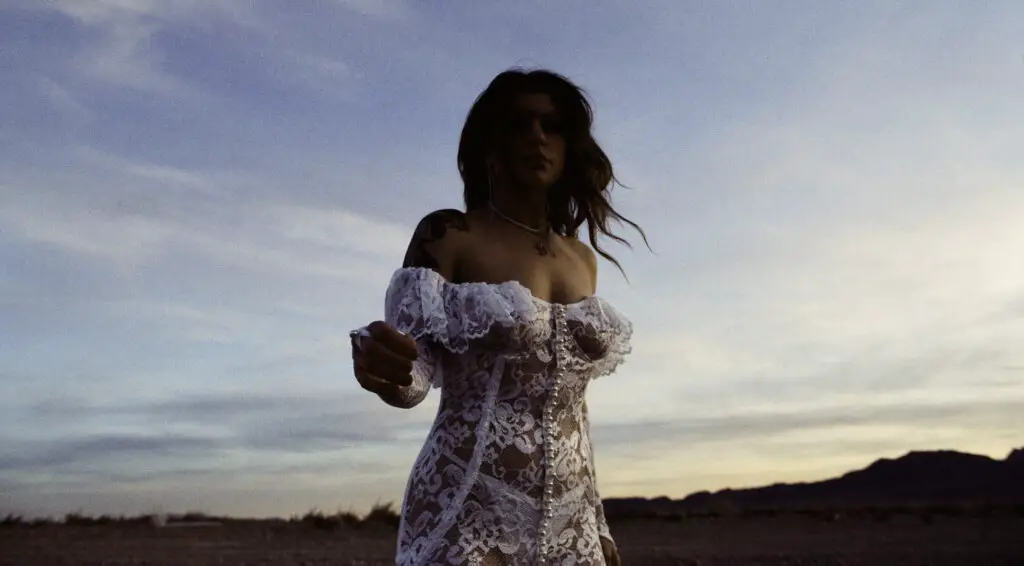
Sheryl Crow and Alanis Morrisette were both hugely successful commercially, but back then it felt like rock critics didn’t take them as seriously as they did male artists. How conscious of that were you at the time?
You’re not conscious of the things you’re not told, right? Like, you didn’t know why women were not taken so seriously, or why they were hyper sexualised, or why you found them in tabloids way more so than in credible media. You don’t clock it because you’re a kid. It’s normal. And I think these things permeate and you don’t even realise.
It wasn’t until recently that that narrative shifted. The sexualisation of women, the narrative being taken away from women, women not being heard, respected, or believed: that’s still rampant. But there’s also this massive wave of women saying, wait a second – we’re taking back that narrative because that doesn’t represent the truth. And women are finally starting to be accepted at the table in a way that we haven’t really before. And so artists that weren’t really given their due respect at the time, I think we’re looking to them now to say, what were your experiences? How did that feel for you?
I got to go to this awesome Women in Music event and Alanis gave this really incredible speech. She said so often – whether it was backstage or in the studio – if men didn’t find her fuckable they wouldn’t speak to her at all, because men at the time didn’t know how to address women that they didn’t want to sleep with. Just to hear that that was her experience as a 19-year-old person, and how that must have informed the way that she moved through the world… That is not OK. That has not been my overall experience. And I think that’s because of women like her who had to live through it.
Do you feel a sense of responsibility to continue breaking down barriers for the next generation of female and non binary artists?
Of course. I think having any kind of voice that people listen to, you do have a social responsibility. I really believe that. And it’s something I take seriously. I want to represent young women, and of course that is absolutely inclusive to all women. I just want to represent the realness and the wholeness of being a woman, flaws and all, and doing it in a way that’s unabashed. Because representation is everything. If you see yourself in someone that you respect, you just have a different perception of the world around you and you’re going to move through the world differently.


